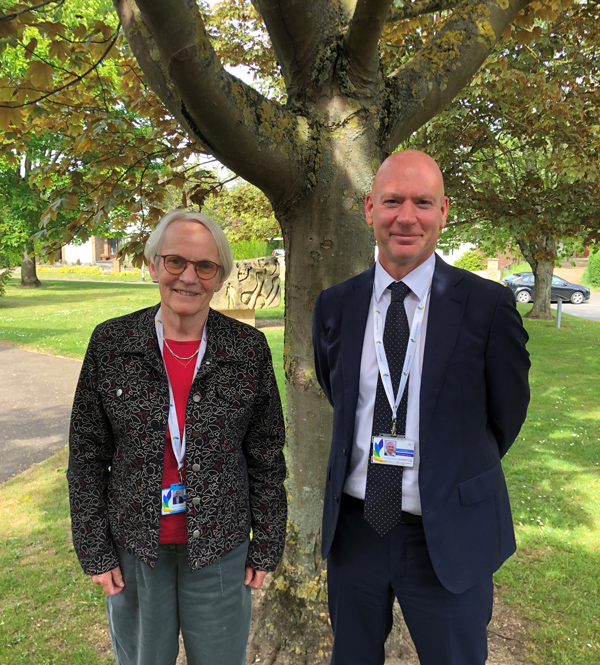The Anglian Learning academy trust won a top award for excellent governance at the start of the year. As the white paper puts academy governance centre stage, Jess Staufenberg finds out what good looks like
Governance has posed a big question mark over the multi-academy trust model, ever since academisation was turbo-boosted in 2010.
Maintained schools always had a governor board, usually with two parent governors, as standard. But under a MAT, the trust has its central board of trustees, who sit above governors of individual schools.
That has at times caused tensions, and ones which have often bubbled to the surface.
Some trusts were open about their wish to scrap them. In 2016, the E-ACT academy chain got rid of local governing bodies, relieving them of key duties to oversee staffing and budgets and instead rebranding them as “academy ambassadorial advisory bodies”. They would now take responsibility for soft tasks such as “celebrating the school’s achievements”.
Meanwhile, Julian Drinkall told Schools Week last summer the local governing bodies for Academies Enterprise Trust were “awful” when he arrived as chief executive in 2016. He ditched parent governors altogether, a move the National Governance Association’s Emma Knights said looked like a “power grab”.
But the other side of the argument, made by pro-academy voice Leora Cruddas, is that LGBs – or rather, “academy committees” – exist only to execute the trust board’s overall vision.
The recent white paper revealed government ambitions for all schools to be in “strong” MATs by 2030, so those tensions are likely to start bubbling up again. Is there a model that works for both trustees and their school communities?
In September, Anglian Learning academy trust, which has 14 schools across Cambridgeshire, Essex and west Suffolk, was the joint winner of the National Governance Association’s award for outstanding governance, picking up the trophy in parliament.
Chief executive Jon Culpin says the trust decided to empower, not fear, their local governing bodies.
“If you think about trusts where there is a high level of uniformity and alignment – that’s not how our trust operates,” he says. “In comparison to many other academy trusts, we don’t see governing bodies as academy committees.

“We make clear when the school joins us that the local governing body should be empowered.”
The approach reflects the fact many of the trust’s schools had strong identities prior to academising. For instance, Anglian Learning has a number of “village colleges”, which is an educational movement specific to Cambridgeshire founded by a former chief education officer, Henry Morris.
The village college model believes schools should be open to secondary-school-age pupils and to adult learners (usually in the evening).
“Morris had a vision of cradle-to-grave learning, where schools would be at the heart of the community, and where learning continued right through to old age, and children would be rubbing shoulders with 70- and 80-year-olds,” smiles Culpin.
Anglian Learning has four of these: Bottisham Village College, Sawston Village College, Bassingbourn Village College and Linton Village College.
This means the educational offer in some of the trust’s schools is notably different to others, with adults joining Sawston Village College for singing on Fridays, for example.
There is no precisely prescribed curriculum imposed from the board downwards, explains Kerrie Jones, head of governance support, compliance and risk. There is a curriculum “blueprint” created by the trust board, but it is based on values rather than exact requirements.
“For example, a school in Anglian Learning wouldn’t become focused mainly on STEM subjects and not offer the arts properly, because as a trust, we’re arts focused,” she explains. “But how they deliver the arts is up to them.”
At the moment, for instance, one school is “embarking on quite an extensive rollout of digital learning through the introduction of iPads,” says Culpin. But another school is experimenting with Rosenshine’s principles of instruction, so the introduction of iPads “would be a distraction”.
“Imposing that experimentation with iPads across the trust could potentially de-professionalise those schools,” continues Culpin. “We want people to have that sense of agency.”

To avoid confusion, the lines around roles and responsibilities are clearly laid out in the trust’s local governing bodies handbook, which Culpin wrote from scratch himself.
This handbook states the LGBs are responsible for monitoring the educational standards and outcomes of their schools, explains Jones (something many academy trustees have removed from their local ‘committees’).
“The board is also looking closely at education outcomes,” she adds. For instance, the headteacher is line-managed by the chief executive, not the LGB chair.
But “it is the LGB which is responsible for holding the head to account for those educational standards”.
The LGBs may also challenge new initiatives they don’t think work.
One example Jones cites is that the central board wanted to roll out a new risk management software across all schools, but it wasn’t very popular. “We got some interesting comments from chairs, such as ‘why are you doing this?’, which was justified,” explains Culpin. “We took that on the chin. It’s a consultative forum.”
This kind of constructive dissent is also enabled by the chairs of the primary schools and secondary schools meeting without trustees present, continues Claire Lawton, the trust’s chair.
“It’s so they can share and talk. It’s important to indicate that we’re not afraid of them.” This approach is also useful in that it “gives people the space to have a moan”.
It’s important to indicate we’re not afraid of the chairs
According to a 2021 survey by the NGA, 71 per cent of MAT trustee respondents did not have any other role in the trust – so they exclusively sat as MAT trustees. But 14 per cent sat on a local tier of governance (for instance, chief executive Dan Moynihan at Harris Federation is listed on academy governing bodies), and 12 per cent of trustees were also MAT members.
Meanwhile, parent governors are useful for the same reason (two are elected on to each LGB), continues Lawton. “They are a nightmare, but they’re a necessary nightmare. The system won’t work without people who don’t agree and have a vested interest.”
Choosing parents only for their professional skills, such as in law, HR and finance, should also be avoided, she adds.
“One thing I think has happened in schools generally is that the bulk of non-professional parents are being excluded from being governors. Schools need to think about how you empower people who are not traditionally empowered, rather than embedding the system further as it is.”

The board tries to hand as much agency as it can to LGBs, while maintaining cohesion and oversight through the handbook and curriculum blueprints.
Nevertheless, financial monitoring and staffing responsibilities have been moved to the trustee board, explains Jones. “The school and its LGB help to set its local budget, but it is the board that really scrutinises the accounts. HR and staff management also really sits with the board.”
Clarity around these roles is also backed up by new governors’ induction training, designed by the board.
On the question of governor training, I point out the NGA wants the government to make induction training mandatory for trustees and governors, given how important the roles are.
But Jones warns: “If you make too much training compulsory, you’re going to scare people off. It’s hard enough at the moment to get governors.”
Mandatory induction training is popular among governors and trustees. The NGA’s latest survey shows that 95 per cent of respondents agreed that high-quality induction training should be mandatory for new governors and trustees. But at the same time, almost two-thirds of respondents reported a challenge in recruiting to the governing board, up from 50 per cent in 2015.
Making the matter worse, Jones adds, is that governance professionals report being “very poorly paid”. (In 2020, the NGA found clerks were being paid on average £10.50 an hour, and has called for an increase in pay.)
However, where people aren’t up to scratch, Culpin is clear the trust will step in to remove them and parachute in its own people (as Drinkall did at AET).
“With one of our schools we took over in the pandemic, the governing body had effectively failed,” explains Culpin. They replaced the entire governing body with an interim executive board.
At another school, the trustees “don’t feel they are making progress,” continues Culpin. “So we’ve appointed our own chair of governors.”
But the plan is always to “eventually stand back” and “transition back to the governing body”.
We always want to transition back to the governing body
It shows how delicate the balance of autonomy and intervention is within academy trusts – particularly growing ones, where a feeling of losing control and needing to impose uniformity must increase exponentially.
That continues at trust board-level too, where Culpin is both a trustee and chief executive. Jones and Lawton are clear this has the added benefit of Culpin “working closely with all of the board, rather than only with the chair”, strengthening the team.
But the NGA’s chief executive Emma Knights has previously warned the set-up is an “in-built conflict of interest”
Again, it shows how delicate the balance of power can be – and with many schools set to change their governance, a way to strike the right balance will be more important than ever.














Your thoughts